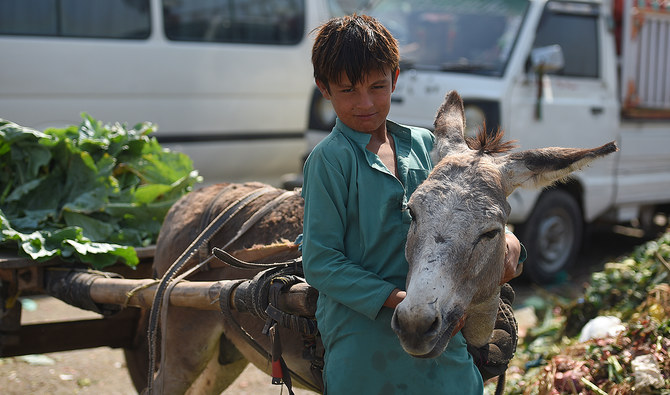ISLAMABAD: The population of donkeys in Pakistan has increased by around 100,000 to 5.8 million as compared to the previous year, the country's economic survey revealed on Thursday, also showing a significant jump in the population of other animals including cattle, buffalo and sheep.
The fresh data shows that the population of donkeys has steadily increased over the past few years from 5.5 million in 2019-2020 to 5.6 million in 2020-21 and 5.7 million in 2021-22. This year it reached 5.8 million.
Unlike donkeys, there has been no change in the number of camels, horses and mules during the same period, which remains at 1.1 million, 0.4 million and 0.2 million, respectively.
The cattle population in the country has increased to 55.5 million, buffalo to 45 million, sheep to 32.3 million and goats to 84.7 million, according to Pakistan Economic Survey 2022-23, which shows the trend of macro-economic indicators, development policies and strategies as well as sectoral achievements of the economy.
“The livestock sector has emerged as the largest contributor to agriculture, accounting for approximately 62.68 percent of the agriculture value-added and 14.36 percent of the national GDP (Gross Domestic Product) during FY2023,” the latest survey reads.
The survey says that animal husbandry is a critical economic activity for rural dwellers in Pakistan, with over 8 million rural families engaged in livestock production and deriving up to 40 percent of their income from this sector.
The gross value addition of livestock has increased to Rs5,593 billion ($19.8 billion) in FY2023 from Rs5,390 billion in FY2022, indicating a growth of 3.8 percent.
“The net foreign exchange earnings of the livestock sector contribute around 2.1 percent of the total exports in the country,” it said.
The government has recognized the potential of this sector for economic growth, food security, and poverty alleviation in the country, and has accordingly focused on its development, it stated.
The overall strategy for livestock development revolves around promoting “private sector-led development with public sector providing enabling environment through various policy interventions,” according to the survey.
The government said it has implemented regulatory measures to enhance per unit animal productivity by improving veterinary health coverage, husbandry practices, animal breeding practices, artificial insemination services, use of balanced ration for animal feeding, and controlling livestock diseases of trade and economic importance.

















